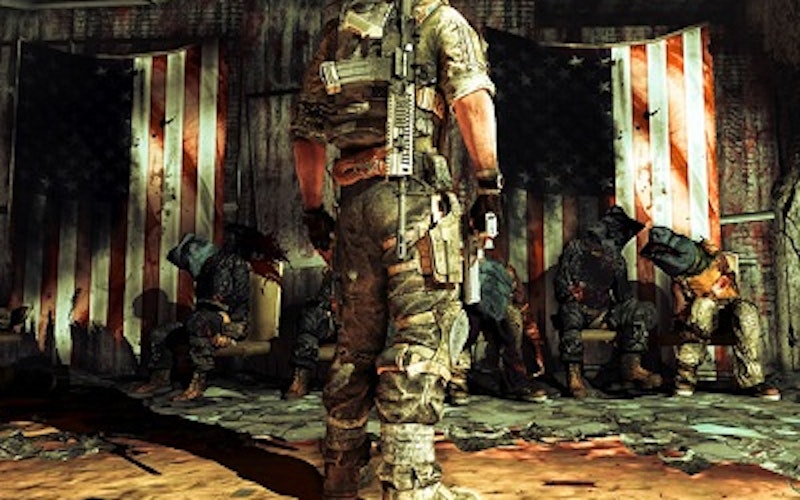
Games
Spec Ops and moral complicity
Ironically, I finished Spec Ops: The Line on Independence Day - a day devoted to celebrating the freedoms “won” by our nation’s military. This is ironic because I often wonder whether the American Revolution fits the Christian definition of a “just war” and because Spec Ops: The Line represents perhaps the least jingoistic American war video game I have ever played.
Spec Ops: The Line hopes to be the Apocalypse Now of videogames - the rare war game that seeks to confront players with their own depravity. Cory Davis, the game’s lead designer, recently said, “Fun isn’t necessarily blowing things up and laughing. It’s fun to be emotionally engaged … We want you to think about the bloodlust that you might have naturally, as you approach this game after playing so many games. We wanted to put in right in your face.”
This happened to me early in the game when I snuck up on two men observing the sun setting over Dubai. They spoke about the importance of taking the time to notice such things in the midst of war. Once they finished speaking they turned and, noticing me, drew their guns. I shot them both in the head.
Spec Ops refuses to turn a blind eye to the dangers of American imperialism. You play Capt. Martin Walker, and your adversaries are actually other Americans - a hardened United States military unit that has turned Dubai into a brutal police state after their mission to evacuate the city went awry. As you come face to face with the atrocities that the squad has committed against both the people of Dubai and fellow troops, your character becomes more and more enraged.
Spec Ops: The Line represents perhaps the least jingoistic American war video game I have ever played.
At one point, Walker decides to wipe out an enemy platoon with white napalm (an ethically questionable weapon). Walker’s squad mates sharply object to the use of the weapon, but you, the player, are not given a voice. You either mark your targets or are shot to death by the enemy. You are then forced to walk through the carnage you are strangely complicit in.
In one of the game’s most moving scenes, your actions inadvertently result in the destruction of the city’s remaining water. Afterward you walk amongst a throng of angry civilians feverishly trying to salvage the last remnants of water. They scowl at you, push you and throw things at you. These are deeply disturbing scenes, not only because of the realities they represent, but because you can’t help but feel complicit in them.
This is something I have been waiting to see for some time - the war game that is critical of its subject matter. I understand why most military shooters don’t tackle such things. Doing so is incredibly risky, as more specious war games are proven sellers. For that reason, I believe Spec Ops to be a step in the right direction.
And yet, I can’t help but feel that they didn’t go far enough. Despite the many instances when the humanity of my enemies was highlighted and the horrors of war were acknowledged, I couldn’t help but grow detached from what my character was doing onscreen. I killed more enemies than I could count. For every emotionally resonant moment in Spec Ops, there are a dozen more where I am mindlessly shooting everything that moves.
I do, however, wonder if I would be bothered by such things at all if it were not for moments when I was forced to kill men admiring sunsets. Perhaps I am not all that different from Capt. Walker. Perhaps that is the point of Spec Ops. It’s not so much about the horrors of war but about me, the player, and the evil I am capable of.
What Do You Think?
- How should Christians engage with war-themed video games?
- Can a Christian understanding of just war theory apply to such games?
- Can there be such a thing as an anti-war video game?
Topics: Games, Culture At Large, Arts & Leisure